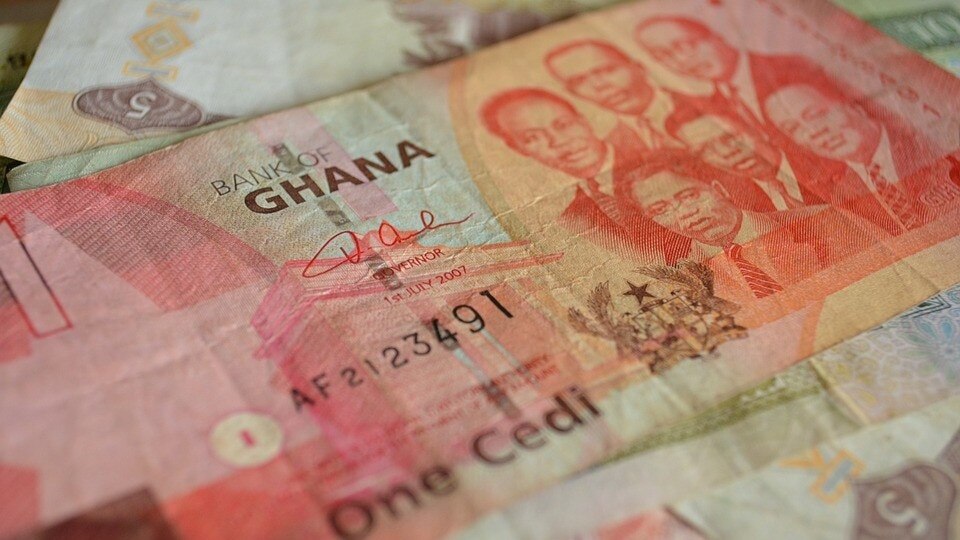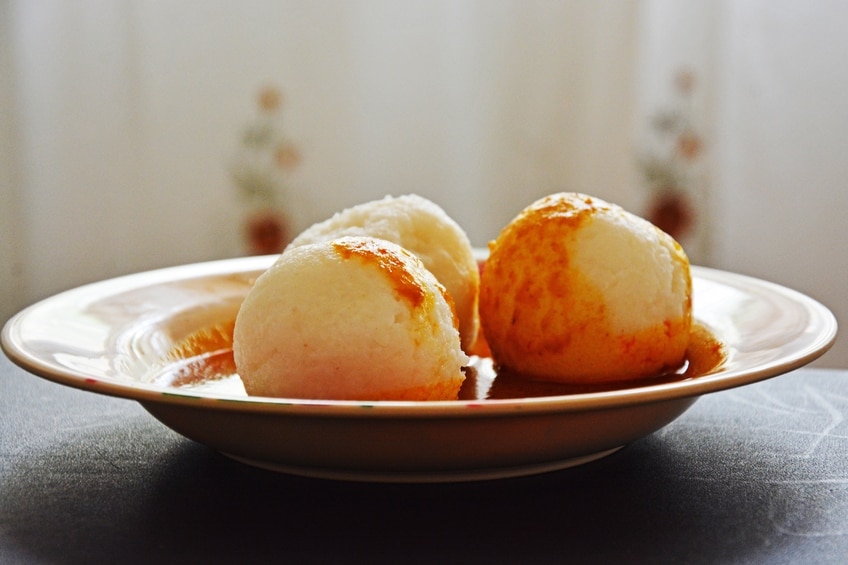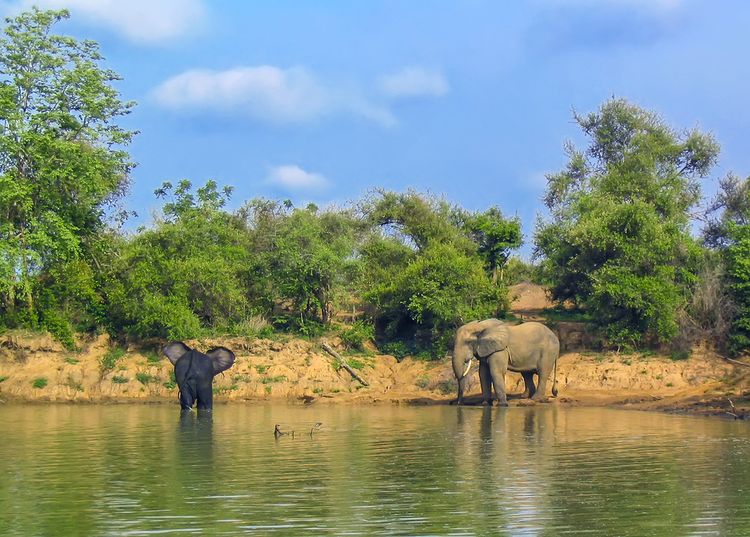Ghana Travel Tips and Information
Official Name
Republic of Ghana
Capital
Accra
Population
Country Code
Approximately 34.12 million people
GH
Country Code (international calls)
+233
The flight time to Ghana is approximately 11~17 hours. Check the climate, currency, religion, manners, other information of Ghana below. Wishing you pleasant travels to Ghana.
Located in West Africa, Ghana is a member of the Commonwealth. It shares borders with Togo to the east, Burkina Faso to the north, Côte d'Ivoire to the west, and faces the Atlantic’s Gulf of Guinea to the south. Ghana is about 750 kilometers from the equator, with the Greenwich Meridian running through the country.
Local Climate / Weather
Ghana’s tropical climate offers a warm experience year-round, but seasonal changes affect the weather patterns across the country. Here’s a breakdown of Ghana’s climate, seasonal travel advice, and major events and festivals to help travelers plan their trip effectively.
Currency & Tipping
Currency
Ghana’s official currency is the Ghanaian cedi (GHS). Travelers will encounter various denominations: Coins: 1, 5, 10, 20, and 50 pesewas, as well as 1 cedi coins. Banknotes: 1, 2, 5, 10, 20, 50, 100, and 200 cedi notes, with smaller denominations commonly used in daily transactions. Having smaller denominations on hand is recommended, especially when shopping in local markets or using taxis, as some vendors may not have change for larger bills.
Tipping
Tipping in Ghana is appreciated but not always expected. Here’s a quick guide: Restaurants and Cafés: A 10% tip is customary for good service, though it’s not obligatory. Some restaurants may include a service charge, so check the bill before tipping. Taxis: Tipping is not required for taxi drivers, but rounding up to the nearest cedi is appreciated. Hotels: Tipping hotel staff, such as porters or housekeeping, with a few cedis for good service is polite and generally well-received. Tour Guides: If you’ve enjoyed your experience, consider tipping your guide around 10 to 20 cedis per person for a half-day tour, or more for a full-day tour.
Useful Travel Information

Voltage & Electrical Outlets
Ghana operates on a 230V supply voltage and uses the Type G plug, the same three-pin plug as the UK. Travelers from other countries with different plug types are advised to bring a universal adapter. Additionally, ensure your devices are compatible with 230V to avoid any damage.

Internet Connectivity
Ghana has a growing internet infrastructure, especially in urban areas: Wi-Fi: Free Wi-Fi is commonly available in hotels, cafes, and restaurants, particularly in major cities like Accra and Kumasi. Speeds are usually suitable for browsing, although connectivity may be slower in rural areas. SIM Cards and Mobile Data: For constant internet access, local SIM cards are a convenient option. Providers like MTN Ghana, Vodafone, and AirtelTigo offer affordable prepaid SIM cards with data packages, which you can purchase at the airport or in shops, providing reliable coverage across the country.
Water for Consumption (Drinking Water)
While tap water in Ghana is generally not considered safe for drinking, bottled water is widely available in supermarkets, hotels, and shops. Drinking bottled or filtered water is highly recommended, particularly for travelers. Carrying bottled water during excursions is convenient, especially for visits to rural areas or outdoor activities.
Culture, Religion & Social Etiquette
Culture
Ghana’s culture is rich with traditions, community values, and respect for elders, creating a warm, welcoming atmosphere that resonates with visitors. The predominant religion is Christianity, followed by Islam and indigenous beliefs, which coexist peacefully, and visitors will notice churches, mosques, and traditional shrines throughout the country.
Religion
Ghanaian cuisine is a flavorful blend of local ingredients and spices that travelers will find both hearty and satisfying. Common dishes include jollof rice, a vibrant rice dish cooked with tomatoes and spices, and fufu, a starchy side made from pounded cassava and plantain, often paired with rich stews.
Social Etiquette
Ghanaian hospitality, similar to the culture, is deeply valued, and locals are often warm and friendly to guests. Key manners include greeting people with a handshake, addressing elders respectfully, and showing appreciation for hospitality. Additionally, avoiding sensitive topics like politics and wearing modest attire, especially when visiting religious sites, is encouraged. Observing these customs helps create a respectful and enjoyable experience in Ghana.
Food Culture
Waakye, a rice and bean dish, is a popular street food served with a variety of toppings like boiled eggs, fried plantains, and spicy pepper sauce. For an authentic taste of Ghana, try local spots like Buka Restaurant in Accra, known for its traditional dishes, or Azmera Restaurant, offering a wide range of Ghanaian cuisine in a buffet style. Exploring Ghana’s street food, especially in markets, offers a chance to taste local favorites while experiencing the vibrant food culture firsthand.
Major Tourist Attractions & UNESCO World Heritage Sites
Major Tourist Attractions
Ghana offers a variety of must-visit destinations for all travelers, blending natural beauty, history, and vibrant local culture. Accra, the bustling capital, is a great starting point with attractions like the Kwame Nkrumah Mausoleum and the Arts Centre, where you can find unique crafts and souvenirs. Coastal towns such as Cape Coast and Elmina are essential for history lovers, home to historic forts and castles like Cape Coast Castle, which offer guided tours that delve into the country’s colonial past and the transatlantic slave trade. For nature enthusiasts, Kakum National Park is an exciting destination featuring a rainforest canopy walkway, while Mole National Park in the north offers a chance to see elephants and other wildlife on guided safaris. Ghana’s diverse destinations offer unforgettable experiences, from exploring bustling cities to connecting with history and nature.
UNESCO World Heritage Sites
Ghana is home to UNESCO World Heritage Sites that provide all travelers with an in-depth look into the nation’s history and culture. The Castles and Forts of Ghana along the coast, particularly Cape Coast Castle and Elmina Castle, are powerful historical sites that explore the legacies of the transatlantic slave trade. Guided tours reveal the deep history of these landmarks and allow visitors to learn more about Ghana’s past. Another World Heritage Site, the Asante Traditional Buildings near Kumasi, offers insights into the architectural styles of the Ashanti Kingdom and traditional Ghanaian craftsmanship. These heritage sites present an authentic look into Ghana’s cultural heritage, creating a meaningful and enriching travel experience.
Travel FAQs
Is English spoken in Ghana?
Ghana is a country where many different languages are spoken, but English is generally widely understood.
What are the major cities in Ghana?
The capital, Accra, is a city located on the coast, and Kumasi is a city that flourished as the capital of a former kingdom.
What is the security situation in Ghana? Is there anything I should be careful of?
Terrorist attacks are frequent in neighboring countries of Ghana, and there are concerns about the worsening security situation.
What is the most popular airport to fly to Ghana?
The most popular international airport is Kotoka International Airport, located in Accra, the capital of Ghana.
What is the best season to visit Ghana?
The best season to visit Ghana is from July to September, when there is little rain.




